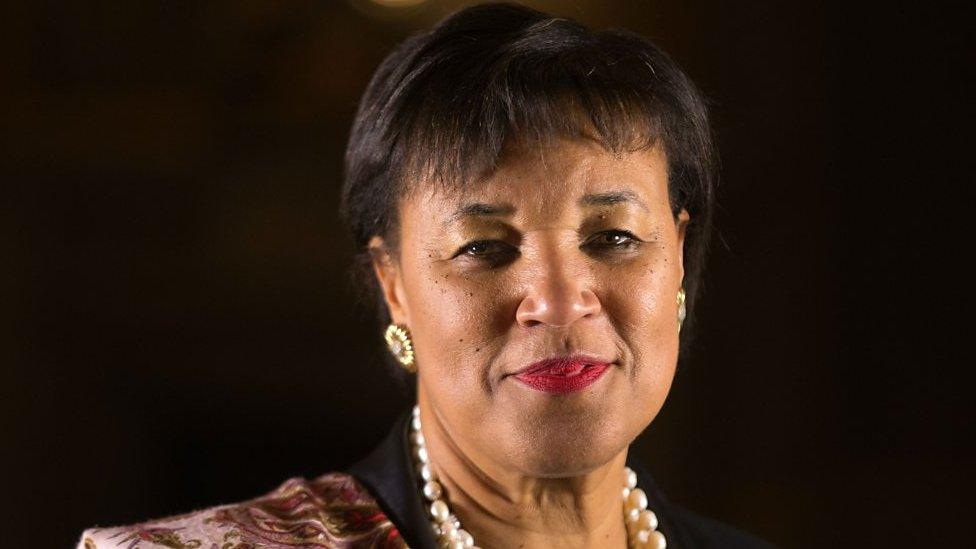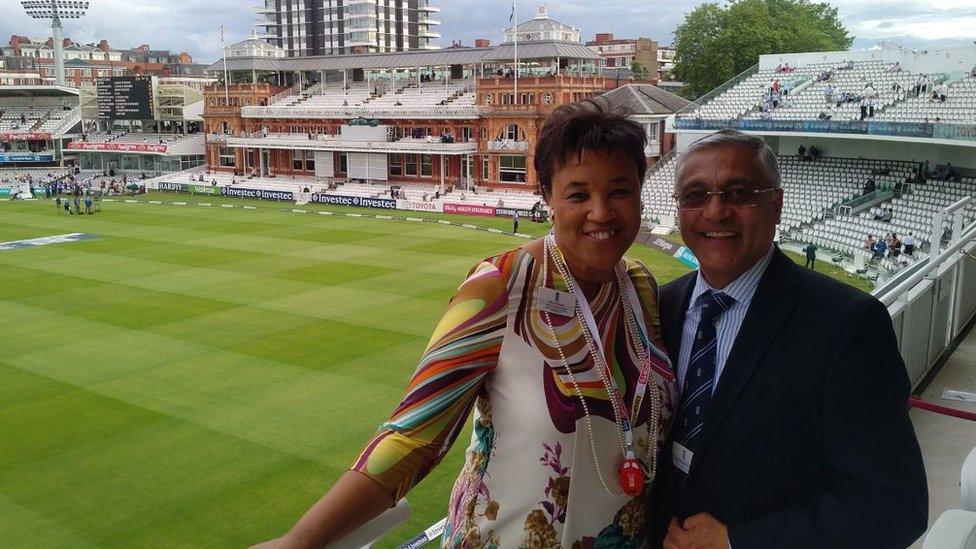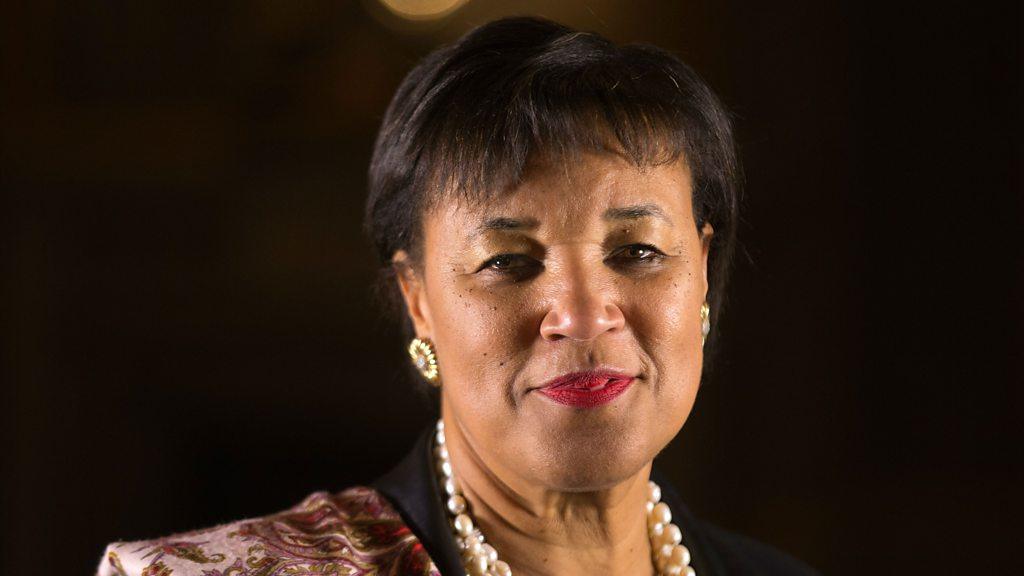Baroness Scotland: Commonwealth faces uncertainty over leadership
- Published

Baroness Scotland is head of the Commonwealth Secretariat - the organisation's main intergovernmental agency
The Commonwealth is facing uncertainty over its leadership after its heads of government rejected calls for the secretary-general, Baroness Scotland, to be given an automatic second term, the BBC has learned.
A leaked letter from Boris Johnson suggests an alternative candidate could stand against her.
Commonwealth diplomats meet on Thursday to discuss the organisation's future.
The Commonwealth Secretariat refused to comment.
Diplomats fear the intergovernmental organisation - comprising more than 50 countries, many of them former British colonies, encompassing almost a third of the world's population - now risks a bitter internal battle over its future leadership.
Lady Scotland's four-year term of office as secretary-general comes to an end next month.
A number of supportive member states suggested before Christmas she should get an automatic second term.
Britain - which currently chairs the international body - asked all 53 heads of government for their views.
On 6 January, the prime minister reported back to Commonwealth leaders with the results of the survey.
In his letter - which has been obtained by the BBC - Mr Johnson reveals that twice as many Commonwealth countries rejected the plan to offer Lady Scotland another four years in office.
The Commonwealth leaders instead agreed the future leadership of the organisation should be decided when they meet in Rwanda in June for their biennial meeting.
To that end, the Commonwealth has agreed to give Lady Scotland a short three-month extension to her contract which was due to expire on 31 March.
Crucially, in his letter, Mr Johnson also suggests for the first time another candidate may come forward to challenge Lady Scotland.
The BBC has been told that Commonwealth diplomats are taking soundings to see if any member states might propose an alternative contender.
The Commonwealth Secretariat said that it "does not comment on leaked documents as a matter of principle".

Baroness Scotland tweeted a photograph of herself with Lord Patel in 2016
The questions about Lady Scotland's future leadership of the Commonwealth come after she was criticised by internal auditors last November for awarding a lucrative consultancy contract to a company run by a friend.
The BBC revealed last week that the Commonwealth's Audit Committee accused her of "circumventing" usual competitive tendering rules by awarding a £250,000 commission to a firm owned by fellow Labour peer, Lord Patel of Bradford.
Lady Scotland's lawyers insisted the decision to award the contract was fully justified. But New Zealand has since confirmed it put its £1.5m annual contribution to the Commonwealth Secretariat on hold as a result of the "significant weaknesses" in managing procurement identified in the KPMG auditors' report.
Commonwealth high commissioners in London are due to meet on Thursday to discuss the challenges currently facing the Commonwealth Secretariat, including the KPMG report.
Diplomatic sources suggested some developing countries could shift their support to an alternative candidate if they fear they could lose Commonwealth revenue streams under the current leadership of the Secretariat.
'No consensus'
Mr Johnson is co-ordinating the debate about the Commonwealth's leadership because the UK is currently the organisation's so-called "chair-in-office" having hosted the last leaders' meeting in London in 2018.
In his letter to the Commonwealth's 53 heads of government, dated 6 January, Mr Johnson says: "A number of colleagues advocated offering the Right Honourable Patricia Scotland QC a second four-year term now.
"However, around double that number said that we should offer her a short extension of her current contract so that we can discuss, debate and decide the 2020-2024 appointment in the usual way at the Commonwealth Heads of Government Meeting (CHOGM).
"So there is no consensus to offer the current Secretary-General a second four-year term now."
Mr Johnson says that delaying the decision until June would not predetermine what choice the heads of government might make.
But he reveals Lady Scotland has yet to announce publicly or privately whether she intends to stand for a second term, and he also suggests for the first time that an alternative candidate could stand.
"When we meet at CHOGM, each of us will be able to support a second term for Baroness Scotland (if she is requesting one), or to support appointment of any other candidate who may come forward."
Diplomatic sources claim Lady Scotland has been campaigning unofficially for re-election for some time. Earlier this week she paid a four-day visit to Eswatini, one of the Commonwealth's smallest members, formerly known as Swaziland.
Last month she spent five days in India, one of the Commonwealth's largest member states.
- Published30 January 2020

- Published13 June 2019
- Published26 January 2017

- Published20 December 2018